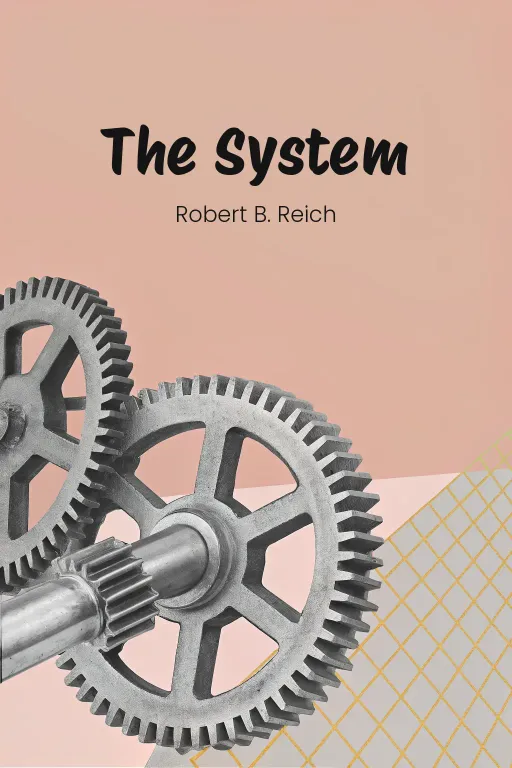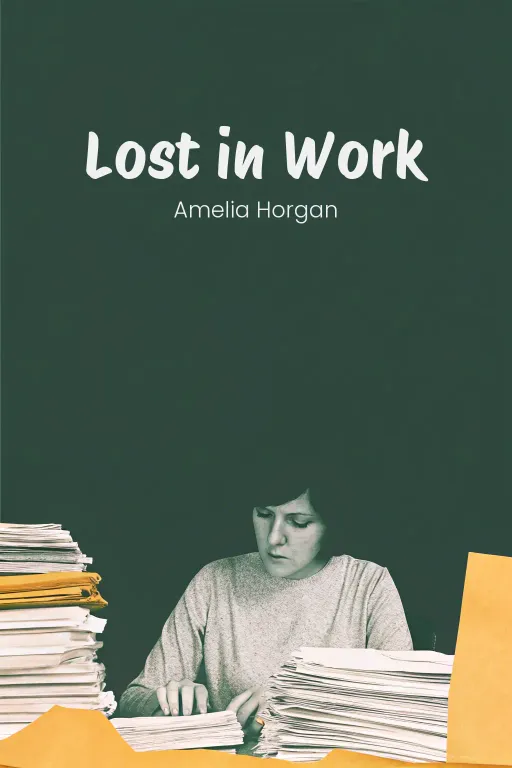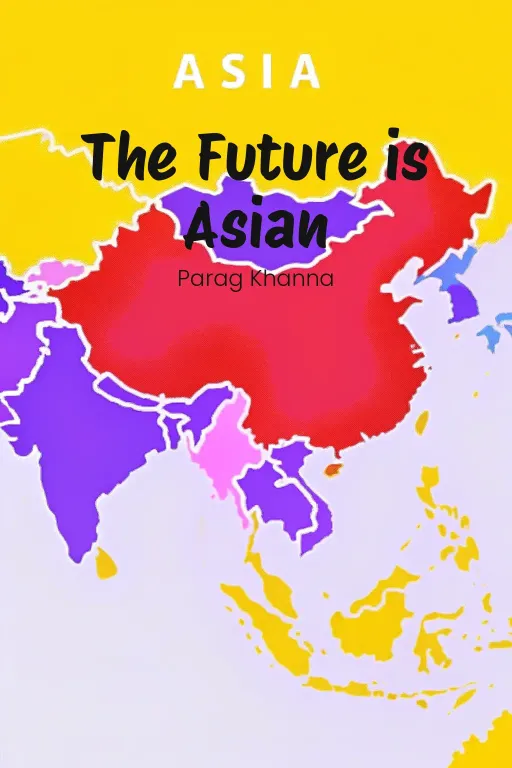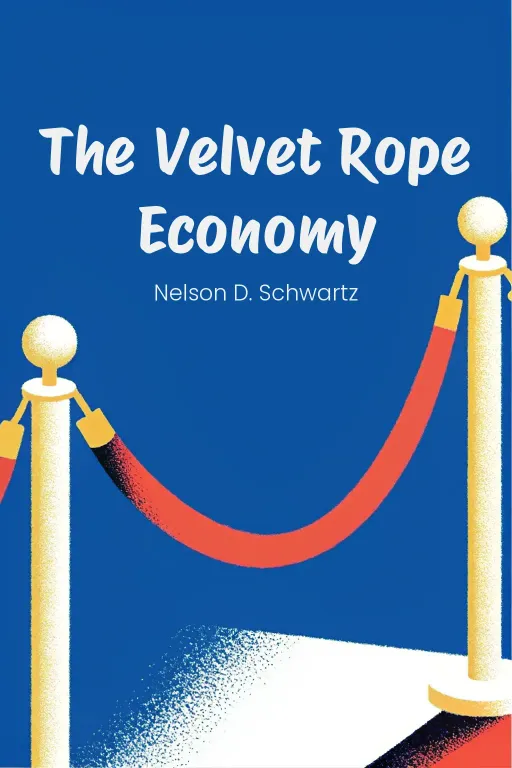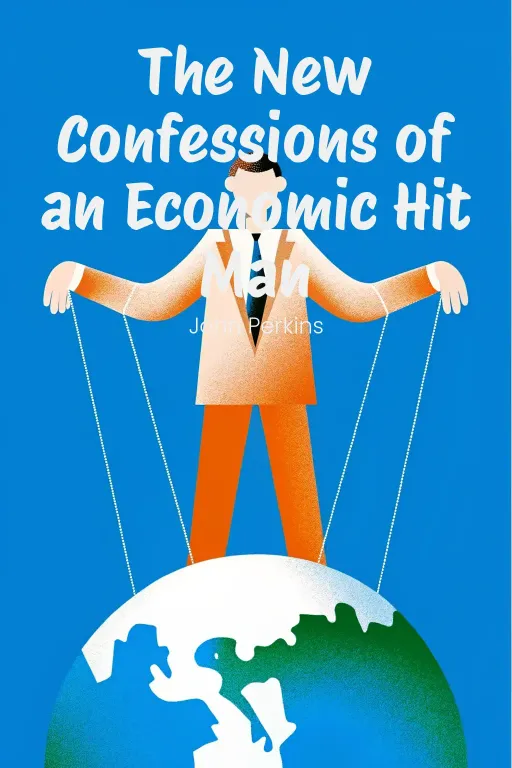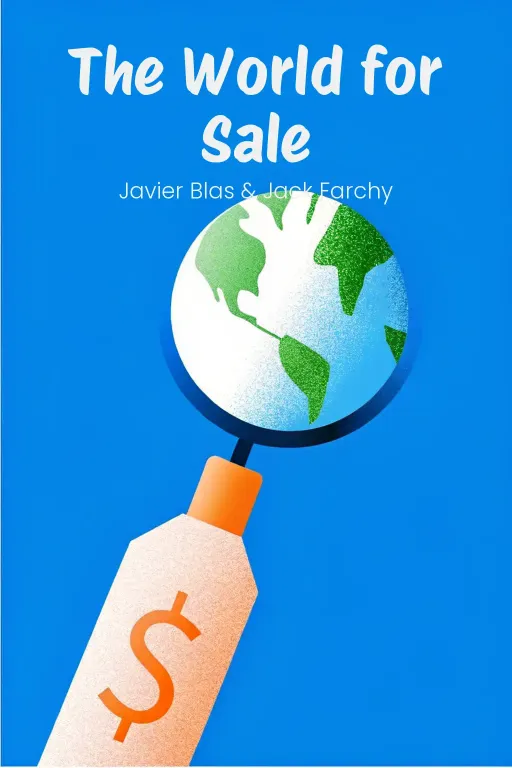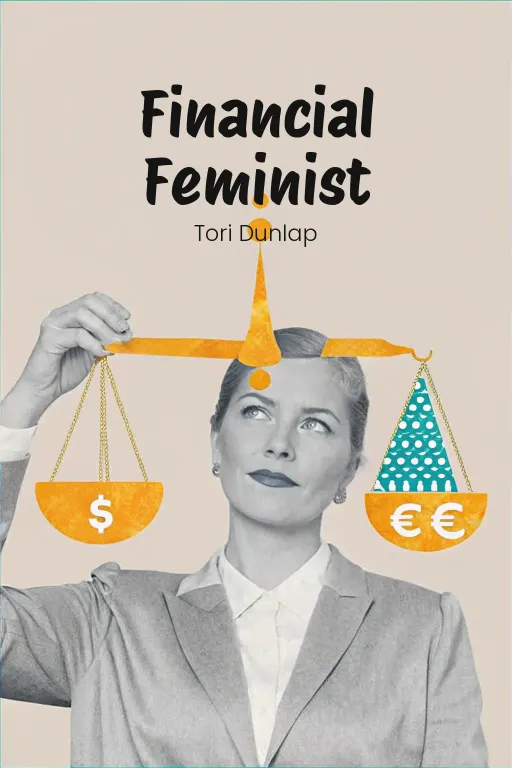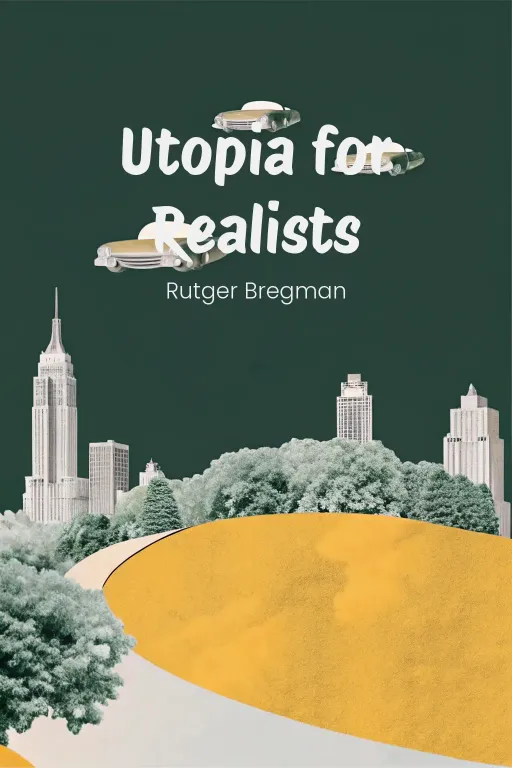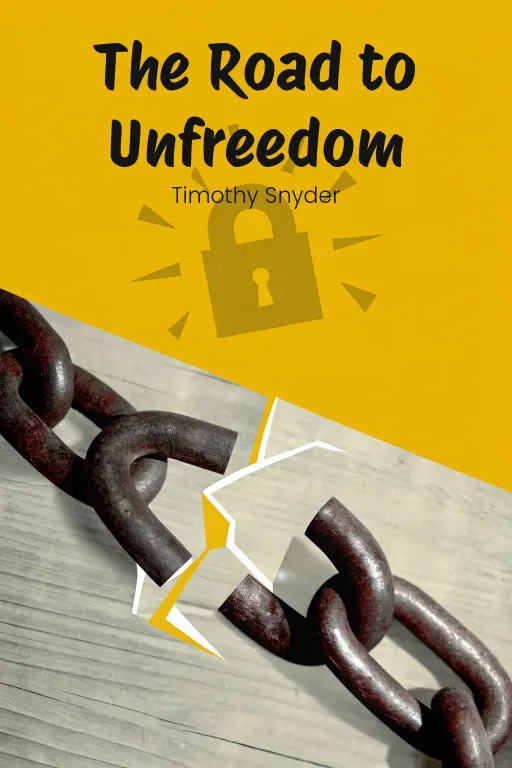
Skip the Line: Fair Access for All?
Podcast by Let's Talk Money with Sophia and Daniel
How Inequality Became Big Business
Skip the Line: Fair Access for All?
Part 1
Daniel: Hey everyone, welcome to the show! Today we are uncovering a really interesting and honestly, quite concerning trend in our world: the Velvet Rope Economy. You know, whether it's VIP lines at theme parks, luxury suites in hospitals, or even how schools are admitting students, this trend is likely affecting you, no matter which side of the rope you’re on. Sophia: Exactly. It's like, you see it everywhere, like those airport security lanes that promise to get you through faster if you pay extra. But honestly, there's more to it than just convenience. It seems to be changing how society functions, or maybe, how it dysfunctions? Nelson D. Schwartz's book really lays it all out. Daniel: Right. Schwartz's book, "The Velvet Rope Economy," it really nails how access to the basics—healthcare, education, even just public spaces—is becoming more and more dependent on wealth. Through really compelling stories, he shows how these divisions aren't just minor inconveniences; they're actually breaking down the idea of public goods, weakening how we connect as a society, and really, potentially threatening our democracy. Sophia: So, today we're really going to dive deep into the main ideas of the book. First, we're going to break down what the Velvet Rope Economy actually is, you know, how this kind of exclusivity works in different sectors. Then, we’ll look at the broader impacts this cherry-picking has on society—how it widens the gaps between classes and breaks down our sense of community. And, we’re definitely not just going to focus on the problems, we’ll also discuss solutions—basically, can we dismantle these velvet ropes for good? Daniel: So, get ready for some tough facts, insightful observations, and a hopeful approach to really level the playing field. Let's dive in!
The Velvet Rope Economy
Part 2
Daniel: Okay, so let's set the stage. The Velvet Rope Economy, at its heart, is about how wealth creates segregation. It’s where access to experiences, to services, even opportunities, is priced so high that it excludes nearly everyone except the really affluent. And the really powerful—and troubling—part is how it plays on our very human desire for exclusivity and status. Sophia: Exactly, and the best example is what Schwartz describes with SeaWorld versus Discovery Cove, right? I mean, on the one hand, you've got your average family, sweating, waiting in line, losing their minds in the sun. And then, just a stone's throw away, you've got Discovery Cove – a tranquil paradise for those who can afford the upcharge. Daniel: Precisely. Discovery Cove is the perfect example of the velvet rope. Private cabanas, fancy food, dolphin encounters – all for a hefty price. It's not just about being comfortable, but the price itself is what keeps the riff-raff out. Families who can swing the $1,240 for a family of four are essentially buying their way into a totally different reality, where stress and lines are someone else's problem. Sophia: SeaWorld had to know how stark that comparison was going to be, right? I mean, they literally designed two versions of the experience, right next to each other! Schwartz points out that envy becomes a deliberate strategy here—a way to amplify the allure of exclusivity Daniel: Precisely! And Michael Bayley, a travel exec, openly admits that "luxury industries paved the way" for using envy to drive consumer behavior. When you think about it, businesses are tapping into a really basic human emotion – this feeling of, "I want what they have" – to really solidify that divide. Sophia: So, the velvet rope acts like a kind of psychological tripwire. One side, people enjoying the exclusive experience; the other, folks staring, feeling like they're missing out. Daniel: And that creates what sociologists call "competitive consumption." It's "keeping up with the Joneses," but on steroids. it’s not just aspiring to upward mobility; it’s the prestige of belonging to that upper echelon. Sophia: Which is brilliant from a business perspective. By dangling that carrot of exclusivity, companies can charge a premium, people will actually pay, even if it means stretching their budgets. But here's what I wonder, Daniel. Is this just human nature? Haven't we always wanted to stand out, to have the best? Daniel: To some extent, sure. But the scale and the pervasiveness are the real game-changers. It's not just limited to luxury markets anymore. It’s creeping into essential, fundamental industries like healthcare and education—where we used to prioritize equality. Healthcare, for example: concierge medicine is a perfect example. Sophia: Oh yeah, concierge medicine. The VIP lounge of healthcare. Pay a few hundred bucks a month, skip the line and get treated like royalty. Daniel: That's a bit cynical, but essentially, yes. Schwartz uses the example of Dr. Ethan Weiss, a cardiologist with months-long waiting lists for the average patient. But if your concierge doctor refers you, suddenly those months shrink to days, even hours, maybe, depending on your status. Sophia: And those of us on "normal" healthcare? Forget about it! So, now we've got this two-tiered system – priority care for the wealthy, and overworked, underfunded public services for everyone else. Daniel: It’s not just inefficient, it’s inherently unjust. Allowing wealth to dictate access only exacerbates the existing inequalities that public healthcare systems are supposed to remedy in the first place. Sophia: And it's happening in education, too. I mean, Harvard's declining admission rate, right? Schwartz talks about how it's dropped from 16% in the 80s to around 5%. Guess who benefits? Families who can shell out tens of thousands for private consultants, giving their kids a leg up in an already brutal process. Daniel: It's heartbreaking. Families who can’t afford those consultants - or who don't have legacy or other privileges - it’s like the doors to opportunity are slammed shut. And it perpetuates this myth that the successful are solely successful based on merit, ignoring the immense financial scaffolding that helped them along the way. Sophia: But isn’t that scaffolding what keeps institutions like Harvard running? I mean, sure, the exclusivity is a problem, but don’t those massive endowments also fund scholarships and financial aid? Daniel: They do, sure, but at what cost? When society prioritizes exclusivity over accessibility, it's not just the excluded who suffer, but all of us. Economic segregation weakens the meritocracy itself. Sophia: Which brings us back to the big picture. These velvet-rope systems are carving society into tiers, and I feel like the travel industry is the easiest example. I mean, have you seen those private suites at airports? Daniel: Oh, yes! Schwartz describes how services like American Airlines’ Concierge Key basically treat elite travelers as a different species, ushering them onto flights with total ease while the rest of us are stuck in long security lines. Sophia: And let's not forget Clear or private terminals just for the ultra-rich. It's not about comfort anymore. It's an entirely different world of travel. Daniel: Exactly. Airports used to be shared public spaces, but now they epitomize this kind of segmentation. And when you see this kind of exclusivity creeping into spaces that historically connected people across class lines, you have to ask, "What's the overall social cost?"
Impacts on Social Cohesion and Democracy
Part 3
Daniel: Sophia, this economic divide, it’s not just about individual experiences, right? It’s got some pretty deep societal implications. When the wealthy sort of retreat into their own exclusive world, the rest of us are left dealing with – well, neglected public spaces, systems that are falling apart... it’s really breaking down our social fabric. But, how does all this actually hurt democracy? Sophia: That's a really insightful question, Daniel. Daniel: Well, democracy really hinges on things like shared trust, civic engagement, this sense of collective responsibility, right? But the Velvet Rope Economy kinda undermines all that. Take trust, for example - when people see the wealthy consistently skipping the line, be it for healthcare, education... even public transport, it feels like a betrayal. It sends the message, "Hey, the system doesn’t work for everyone." It just caters to those who can afford to bend the rules. Democracy needs public trust to function properly, and that erodes it. Sophia: So the real line isn’t the one at the DMV, it’s between people who can afford to opt out of the shared experience and people who can't. Daniel: Precisely. Robert Putnam, a sociologist at Harvard, calls this phenomenon "social capital erosion." Without shared experiences, the wealthy become disconnected from the struggles of everyday people, creating this "us versus them" mentality. Airports, for instance, used to be this place where everyone came together, regardless of income. Now, you’ve got private lounges, exclusive terminals... The wealthy are just inhabiting a completely different world. Sophia: Exactly, it’s the "us versus them" situation. Airports used to be great equalizers. Everyone equally hated the long security lines. Now, the wealthy can just bypass all that while we're all squished in the economy waiting area, buying overpriced snacks from a cart. Daniel: Absolutely! But seriously, it does undermine how democracy works. Michael Sandel, a philosopher, talks about how shared public spaces once actually helped cultivate empathy. When you're standing shoulder to shoulder with people from different backgrounds, it really reminds you of the commonalities, not just the class differences, right? Sophia: “Hey, we’re all in this mess together" kind of sentiment, right? Daniel: Exactly. Once those interactions disappear, empathy goes away with them. The wealthy don't advocate for public systems because they don't use them—they’ve got private parks, private schools... private everything. The rest of society's left to make do with dwindling resources. Sophia: Okay, playing devil’s advocate here for a second. If wealthier people are opting out of public systems, doesn’t that free them up for the people who rely on them? Sounds good in theory? Daniel: In theory, maybe. But in reality, it doesn't work that way. When wealthier individuals withdraw their support—financially, politically, socially—it leads to chronic underfunding and reduced quality. Like public parks: affluent families stop using them. Funding drops, maintenance declines, and these spaces become less inviting, less safe... Everyone loses in the end. Sophia: So, it’s a snowball effect. The rich leave, public resources deteriorate, and the remaining users, they're stuck with the fallout. That's pretty bleak. Daniel: It is. And the consequences? They reach far beyond logistics. These segregated spaces don’t just create a physical divide, they foster resentment. People watch others gliding through life with private jets, concierge healthcare, and top-tier education. It sends a deeper message – the system itself is rigged. Sophia: And that resentment bubbles up into politics and polarizes communities, creating, as you mentioned, this loss of faith in our institutions. Daniel: Precisely. Schwartz argues that this fuels a lack of interest or cynicism towards democracy. If people think the system just serves the elite, they disengage – they don’t vote, organize, or trust politicians to have their back. Sophia: It all comes full circle. Fewer people voting or advocating for change, and that economic divide become more entrenched. It’s like trying to stop a flood with a bucket. Daniel: Exactly. Economic stratification amplifies polarization. People from different classes occupy entirely separate worlds, no room for shared values or dialogue. It’s easier to dismiss other's challenges. Sophia: It’s like shouting into your own echo chamber. It's no wonder polarization is at an all-time high. Daniel: Exactly. The danger here isn't just theoretical. When society loses connective tissue of trust and shared experience, democracy begins to crack. Sophia: So really, we're looking at an existential issue for democracy. It’s not missing out on an airport lounge or healthcare fast track, but what kind of society are we building if we allow this Velvet Rope Economy to thrive unchecked? Daniel: Exactly. Without intervention, Schwartz has warned, this economic divide could become far more unyielding. Whether it's better policies, restructured taxes, neglected public systems... the stakes are too high to ignore. We need solutions to rebuild communal bonds and restore trust – not just in each other, but in the systems intended to serve us all.
Solutions and Collective Action
Part 4
Daniel: So, besides social fragmentation, this stratification leads to real economic and cultural problems. The Velvet Rope Economy doesn’t just break society apart—it actively hurts the very things that should bring us together. That brings us to solutions and working together. Since the problem is in the system, the solutions have to be as well. Now, let’s switch gears from identifying problems to exploring how we can fix this growing divide in ways that promote fairness and shared responsibility. What do you think? Sophia: Okay, Daniel, I’m curious. What does that actually look like? Are we talking about laws, business changes, movements from the ground up—or maybe everything together? Daniel: Definitely everything together. It’s a mix of approaches. I think we should focus on three main areas for solutions: bringing new life to our public institutions and spaces, encouraging businesses to be more inclusive, and really supporting a culture of collectivism. Let’s start with public institutions, since they’re often the first to suffer when there’s economic division. Sophia: Public spaces—like parks, schools, community centers—those are where we’re supposed to meet and connect, right? Daniel: Exactly. When they’re well-funded and easy to get to, they help level the playing field. But when the wealthy avoid public systems and go for exclusive, private options, those shared resources start to break down. A great example of how revitalization can work is what NYU’s School of Medicine did by getting rid of tuition for incoming students. Sophia: Yeah, that was a bold move. But didn’t they set aside something crazy, like $650 million for this? That’s a level of planning and commitment we don’t see often. Daniel: That’s true, Sophia. NYU created a special fund to keep this program going, and the effects are significant. By removing the money barrier to medical education, they’re not just helping students—they’re actually making the medical field more diverse. The less the barriers, the more doctors from different backgrounds, which, in the long run, improves healthcare for everyone. Sophia: It’s also about trust, isn’t it? A medical system that shows the diversity of its patients will build more trust. But here’s my question: how easily can this be expanded? I mean, not every institution has hundreds of millions of dollars just lying around. Daniel: That’s a fair point. But it doesn’t have to be exactly this model. The main idea here—removing money obstacles to encourage fairness—can be expanded if we invest properly. And that idea applies not just to education but also to places like public parks. What if we treated parks the way we’re treating NYU’s tuition program, as investments in the community’s well-being? Sophia: Let’s talk about parks for a minute, because they really show what we’re losing to privatization. Public parks are supposed to be places where everyone, no matter how much money they have, can relax and connect. But what happens when the money runs out? Daniel: When the money disappears, the facilities get worse, there are safety concerns, and fewer people come together. And this is exactly what allows privatization to step in. People look at their falling-apart local park and think, “I’d rather pay more for a private space that’s clean and safe.” But then the cycle continues—more public neglect, less trust in public systems. Sophia: It’s depressing. Walking through a neglected park is like walking through a symbol of where society’s priorities are. So how do we get people to invest again—not just money, but their faith—in public spaces? Daniel: That’s where community collaboration and public leadership come in. Cities can allocate money for revitalization projects, and they can also invite businesses to adopt a model like the Green Bay Packers. Sophia: Okay, I know they win Super Bowls, but remind me, what makes them a good example for inclusivity? Daniel: The Packers are a professional sports team that actively resisted the trend toward luxury exclusivity in stadiums. While many teams build luxury boxes that the average fan can’t afford, the Packers have kept their affordable general seating. They put inclusivity over profit. Mark Murphy, the president, has even said that alienating working-class fans was never an option. Sophia: Wait—so a sports team, in this economy, voluntarily turned down a money-maker like luxury suites? Daniel: Exactly. They knew that their identity as a team was closely tied to their community. By keeping ticket prices affordable, the Packers created an experience that strengthens bonds between fans from all economic backgrounds. It’s a choice that says, “This game is for everyone,” not just the elite. Sophia: That’s rare, though, because most of the time, the desire for profit seems to win out over those values. Is there a way to get more businesses to follow the Packers’ lead? Daniel: There is. Businesses can combine profitability with inclusivity if they’re willing to think long-term. For example, instead of only catering to wealthy clients through concierge healthcare or VIP experiences, companies could invest in improving access for underserved areas. By doing that, they help build healthier, more resilient communities, which ultimately benefits everyone economically. Sophia: But Daniel, that sounds idealistic. For businesses, there’s always a cost-benefit analysis. If exclusivity is where the money’s at, what’s the actual incentive for inclusivity? Daniel: That’s a great question. The incentive is reputation. Consumers today, especially younger ones, “really” care about corporate responsibility. A business that clearly prioritizes fair practices can stand out in the market. Plus, healthier communities mean stronger economies, which eventually means more customers with money to spend. Sophia: So it’s about changing the bottom line—less focus on short-term profit, more on long-term gains. But even if businesses and public institutions get on board, how do we deal with the cultural aspect of this? Because people seem more and more drawn to exclusivity. Daniel: That’s the core of the issue, Sophia. Addressing the Velvet Rope Economy is as much about cultural change as it is about systemic change. It requires promoting a sense of collectivism—a belief that shared institutions and spaces benefit everyone. This starts with how we present public resources. Take public education, for example. Fair funding can make sure that every child has access to quality schooling, no matter where they live. Sophia: But is just talking about it enough? What happens when people simply stop believing that public education or healthcare can meet their needs? Daniel: That’s where movements from the ground up and public accountability come in—getting citizens to not just ask for but actively participate in rebuilding these systems. The closure of Doctors Medical Center in San Pablo, California, is a warning. That hospital was underfunded and eventually shut down, leaving residents to travel miles for emergency care. It’s a stark reminder of what happens when we neglect public infrastructure. Sophia: And the consequences weren’t just inconvenient—they were tragic. Delayed access to emergency services can literally cost lives. So, if we’re serious about solutions, it sounds like we need to prioritize reinvesting in public systems as a moral duty, not just a financial calculation. Daniel: Exactly. But it’s also about broader advocacy. Policies and grassroots campaigns that support investment in public goods can shift priorities back toward inclusivity. It’s about reminding people that collective action strengthens democracy and that shared spaces and services ultimately benefit everyone—not just the less wealthy. Sophia: Okay, I get the vision—revitalize spaces, get businesses on board, and promote collectivism. It’s ambitious, but it sounds like the only option if we want to keep society, and democracy, intact. Where do we even start?
Conclusion
Part 5
Daniel: Okay, so to wrap things up, today we “really” dug into how this Velvet Rope Economy is basically changing society. It's building wealth-based walls around things like healthcare, education, even public parks. It's not just about fancy stuff for some people, right? It's chipping away at trust, making inequality worse, and honestly, weakening the whole idea of democracy. Sophia: Exactly, and this whole "us versus them" thing, it's not just a matter of taste. It breaks down communities, isolates people, and hurts the stuff we all share and benefit from. This Velvet Rope isn't just about being exclusive, it's about what happens when we put individual perks over investing in the community. Daniel: So, what do we do about it? Well, we need to think big. We have to breathe new life into public services like schools and parks. We need to push companies to think about including everyone, not just making a quick buck. And “really”, we need to build a culture that's all about looking out for each other. Sophia: Which begs the question, doesn't it? What kind of world are we trying to create here? Are we okay with a world where being exclusive is just how things are, or do we fight for systems that actually bring people together? Daniel: Right! And it starts with each of us recognizing what we can do to support shared spaces and opportunities. You know, things that lift everyone up. Because when you think about it, a society that's divided just can't last. We're way stronger when we invest in each other's success. Sophia: So here's the thing to think about: Look around at your own life – how you vote, where you spend your money, the public services you support. Ask yourself, are you making that rope tighter, or are you loosening it up a bit for everyone else? Daniel: Totally. It's a question we all need to wrestle with, because how we answer it is going to shape the future we all share.
